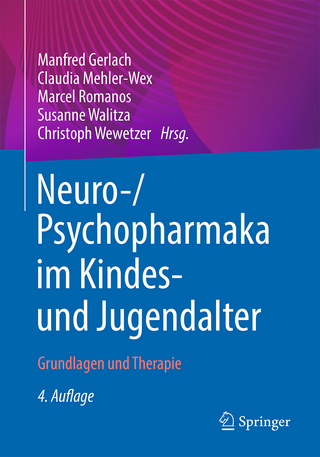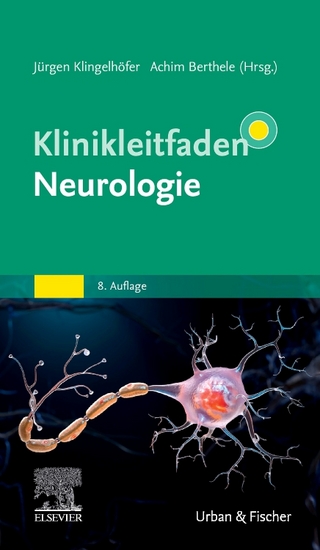
Alcohol and Tobacco
Springer Wien (Verlag)
978-3-7091-1718-7 (ISBN)
- Titel erscheint in neuer Auflage
- Artikel merken
Otto Michael Lesch, MD is currently President of the Austrian Society of Addiction Medicine, Head of the Alcohol Research Group of the Medical University of Vienna, Department of Psychiatry and Psychotherapy. Since 1972 he is responsible for longterm studies in alcohol dependence. He organized many international clinical trials and basic research in alcohol and tobacco dependence. He served 12 years as secretary of ESBRA and organized European networks for alcohol research. He always bridged the gap between basic and clinical research and developed clinical used tools to define subgroups of addiction for better treatment approaches. His assessment tools are now available in many different languages (www.LAT-online.at). Henriette Walter, MD, is University Professor at the Dept. of Psychiatry and Psychotherapy. She is a member of the Senate and of many commissions of the Medical University, Vienna. Dr. Walter is working in the field of alcoholism since more than 20 years, both, practically and scientifically, with over 200 publications. She is secretary of the ‘AUSAM, the Austrian Society of Addiction Medicine and an ESBRA board member. She is associate editor of the Journal “Hypnose”, a field in which she takes an active scientific interest since 1982. With the “theory of frontalisation” as the neuro-equivalent for the hypnotic state, she contributed to the neuroimaging research in this field. She gives regular training courses in medical hypnosis. Christian Wetschka, PhD.is socialpedagogue, working in diverse socialtherapeutic and pastoral fields, supervisor, founder of Verein Struktur, which provides commune-flats for alcohol dependent persons Michie N Hesselbrock, PhD is Professor Emeritus at the School of Social Work, and Professor of Psychiatry at the School of Medicine, University of Connecticut. She held the Zach’s Chair, and was the founder and director of the PhD program at the School of Social Work before her retirement. She has served on several NIH study sections and VA Merit review committees as a regular member and as an ad hoc reviewer. Her research interests include epidemiology, behavior genetics, and health disparities of alcoholism and treatment Victor Hesselbrock, PhD is currently Professor and Interim Chairman, Department of Psychiatry, University of Connecticut School of Medicine. He holds the Physicians Health Services endowed chair in Addiction Studies. Dr. Hesselbrock is the Principal Investigator and Scientific Director of the University of Connecticut’s NIH/NIAAA funded Alcohol Research Center and is co-PI of the NIH funded national Collaborative Study on the Genetics of Alcoholism (COGA). He is a past President of the Research Society on Alcoholism (RSA). Dr. Hesselbrock is Associate Editor of Alcoholism: Clinical and Experimental Research, a Review Editor for Addiction, and a member of the editorial board of the Journal of Studies on Alcohol and Drugs. His research interests include: the genetic epidemiology of alcoholism; co-morbid psychiatric conditions and substance dependence; and psychosocial, cognitive, and genetic risk factors for developing alcohol dependence and alcohol-related problems.
'1 Information on the origination of the book1.1 Aims of this book1.2 Personal reasons for the first author writing this book2 Addiction- a short overview over a widespread disease2.1 Introduction2.2 Prevention2.3 Diagnosis of addiction2.4 Aetiology of addiction2.5 Secondary disorders and addiction2.6 Secondary diseases and brain functions2.7 Subgroups of addicts2.8 Motivation of addicts2.9 The path from motivation to therapy2.10 Addiction and relapse2.11 Specific groups of addicts2.11.1 Co-morbidity of tobacco and alcohol addiction2.11.2 Overweight, eating disorders2.11.3 Gender2.12 Addiction and the homeless2.13 Polytoxicomania2.14 Non-substance dependence3 Aetiology of Addiction3.1 The psycho-socio-biological model3.2 Psychological theories3.2.1 Behavioural approaches3.2.2. Models of depth psychology3.2.3 Depth psychological approach3.2.4 Ego-psychological approaches3.2.5 The psychological model of object relations3.2.6 Approach according to theories of Narcissism3.2.7 Explanation models according to family psychotherapy3.3 Social explanation approaches3.4 Biological theories about the aetiology of tobacco and alcohol addiction3.4.1 Important findings about tobacco and alcohol use from basic research3.4.2 Aspects of alcohol and tobacco metabolism3.4.3 Maternal tobacco and alcohol use during pregnancy - a risk factor for the offspring?3.4.3.1 Smoking during pregnancy3.4.3.2 Alcohol use during pregnancy3.5 Aetiological aspects of tobacco and alcohol addiction from an epidemiological perspective3.6 Aetiology of addiction from a psychiatric perspective4 Prevention strategies4.1 Attitude towards addictive drugs4.1.1 Attitudes towards alcohol consumption4.1.2 Attitudes towards tobacco consumption4.2 Primary prevention of tobacco and alcohol addiction4.3 Secondary prevention: early diagnosis and early intervention4.3.1 Conclusions for secondary prevention4.3.1.1 Measures concerning the addictive drug4.3.1.2 Measures for enabling adolescents to live drug-free4.4 Tertiary prevention5 Diagnosis of abuse and addiction5.1 Problems concerning psychiatric diagnoses5.2 Development of the term "addiction"5.3 Substance related diagnoses in the ICD-105.3.1 Harmful use (ICD-10 F10.1, F17.1)5.3.2 Dependence syndrome (ICD-10 F10.2, F17.2)5.3.3 Withdrawal state (ICD-10: F10.3)5.4 Substance related diagnosis in DSM-IV (American Psychiatric Association. 1994)5.4.1 DSM-IV and the multidimensional diagnostic in five axes5.4.2 Diagnosis according to DSM-IV axis I5.4.2.1 Tobacco or alcohol abuse5.4.2.2 Tobacco and alcohol addiction5.4.3 Specifiers defining subgroups of dependence5.4.3.1 Tolerance and withdrawl5.4.3.2 Course specifiers5.4.4 Therapeutic appraoch5.4.5 Withdrawal symptoms of tobacco and alcohol5.5 Commonalities and differences of ICD-10 and DSM-IV5.6 Implication of these classification systems for therapy and research5.6.1 Alcohol5.6.1.1. Studies on medicamentous relapse prophylaxis (according to Hester RK andMiller WR 2003)5. 6.1.2 Studies on relapse prophylaxis using psychotherapy5. 6.1.3 Family psychotherapy5.6.2 Tobacco6 Types, dimensions and aetiology6.1 Alcohol addiction6.1.1 Development of typology research6.1.2 Important types for research and practice6.1.2.1 Two-cluster solutions6.1.2.2 The four-cluster solutions6.1.3 Assessment of severity in different dimensions6.1.3.1 Addiction Severity Index (ASI)6.1.3.2 Syndrome diagnosis according to Scholz6.2 Tobacco addiction6.2.1 Smoking typology according to Schoberberger and Kunze6.2.2 Smoking typology according to Fagerstroem6.2.2 European Smoking Classification System6.3 Alcohol addiction: Lesch's typology6.3.1 Framework for the definition of
| Erscheint lt. Verlag | 14.10.2014 |
|---|---|
| Zusatzinfo | XVII, 354 p. |
| Verlagsort | Vienna |
| Sprache | englisch |
| Maße | 170 x 244 mm |
| Gewicht | 647 g |
| Themenwelt | Medizin / Pharmazie ► Gesundheitswesen |
| Medizin / Pharmazie ► Medizinische Fachgebiete ► Neurologie | |
| Medizin / Pharmazie ► Medizinische Fachgebiete ► Psychiatrie / Psychotherapie | |
| Schlagworte | aetilogy of addiction • aetiopathology • Co-morbidity • damages • detoxification therapy • drinking behaviour • intoxication • psychological approach • tobacco • withdrawel therapy |
| ISBN-10 | 3-7091-1718-6 / 3709117186 |
| ISBN-13 | 978-3-7091-1718-7 / 9783709117187 |
| Zustand | Neuware |
| Haben Sie eine Frage zum Produkt? |
aus dem Bereich


